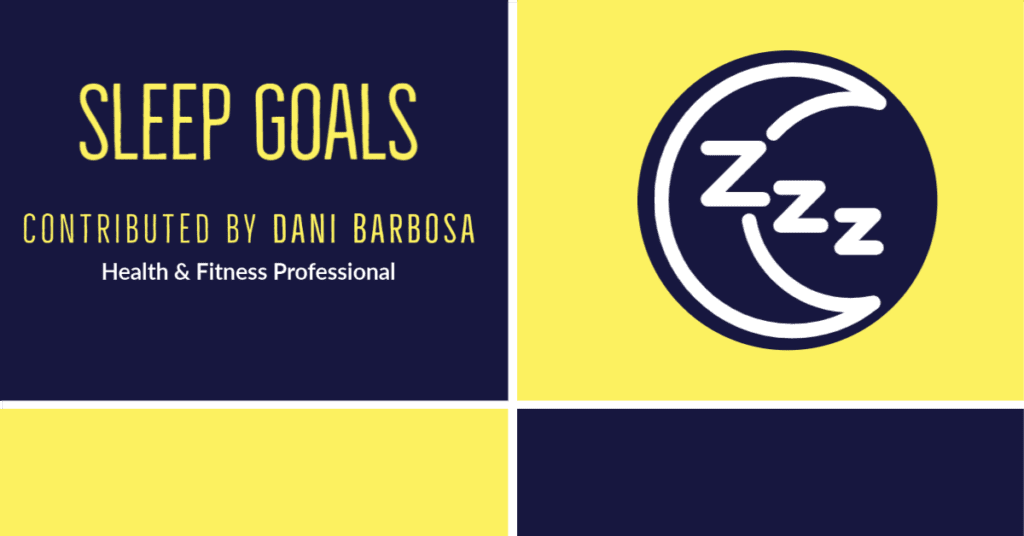
Sleep Goals
Contributed by Dani Barbosa
Health & Fitness Professional
When it comes to improving and maintaining your overall health, sleep is equally as important as nutrition and exercise. Quality sleep promotes recovery, mental clarity, and contributes to weight loss/management.
We’ve all been guilty of it. We operate on a few hours of sleep, drag ourselves through the day, and end up being halfway present by the time we get home, and repeat. Although you may have been able to pull this off in college and your early adult years and get away with it, overtime, it will take a toll on your health. Like all bad habits, they take time to break and replace with new “healthier” ones. Prioritizing and improving your sleep patterns can be extremely difficult depending on your situation, but the benefits of this change greatly outweigh the cost tenfold.
Here are some tips to help create or improve your current sleep routine, optimize your sleep space, and wake up:
Sleep Routine:
- Limit alcohol and caffeine a few hours before sleep, this can affect your ability to fall asleep.
- Eat dinner a few hours before bed, eating a large meal right before sleep may interfere with your ability to fall and stay asleep.
- Unwind your mind, write down and vent anything and everything running through your head that may keep you up.
- Unplug, turn off, and put away all electronics if you can, too much light before bed can affect your ability to go to sleep.
- Stretch or destress, unwind and relax your body, light movement or meditation can prime your body for optimal sleep.
Sleep Space:
- Keep the room as dark as possible or limit your light exposure as best you can.
- Declutter your space, a messy environment can stimulate a restless mind.
- Set a comfortable temperature, find a climate that works best for you.
- White noise if needed to help ease your mind and lull you to sleep.
Wake up:
- Wake up with light, the body is made to sleep in the dark and wake in the light. Wake up by gradually exposing the body to light, this will tell the body it is time to get up.
- Wake up to soft noise, instead of giving yourself a heart attack at 6:00am with a blaring alarm, set a soft noise to gradually increase to help you wake up.
- Get moving, staying in bed makes going back to sleep that much easier. Get your feet on the floor and stand up to get your day going.
